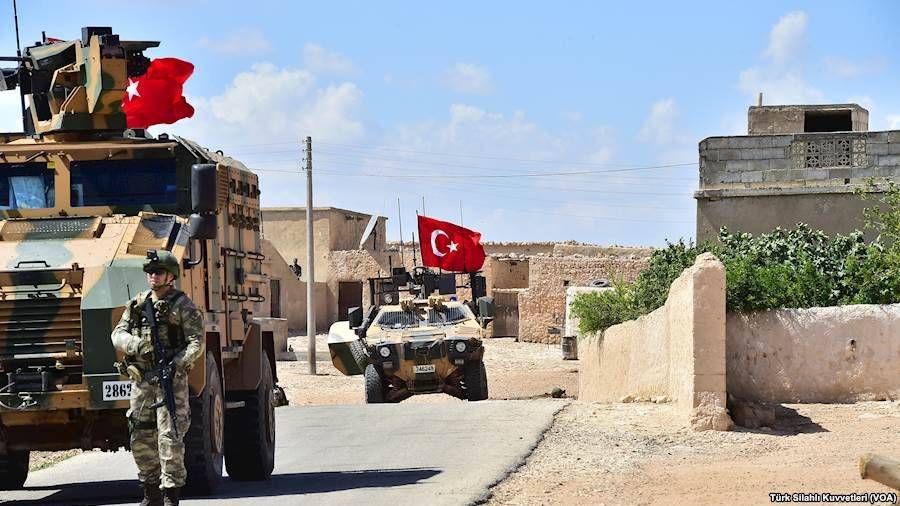1263 Views
The Quiet Invasion: Turkey’s Deepening Military Footprint in Iraq
Last Tuesday, Turkey’s parliament approved President Erdoğan’s proposal to extend the deployment of Turkish armed forces in Iraq and Syria for another three years — until October 30, 2028.
This marks the longest extension since Turkey’s first cross-border incursion into Iraq , shifting the mission’s nature from a short-term tactical response to a long-term strategic foothold.
While Ankara claims its operations are meant to counter threats in northern Iraq, critics argue that the real threat now lies in Turkey’s growing permanence on Iraqi soil — a development that has triggered both political and public backlash inside Iraq.
A Clear Violation of Iraqi Sovereignty
The renewed mandate comes despite strong opposition from Iraqi officials and political groups who have consistently described Turkey’s military presence in northern Iraq as an illegal occupation .
Qasim al-Ghraoui, a political analyst, urged Baghdad to take a “firm diplomatic stance” against what he called Turkey’s blatant disregard for Iraqi sovereignty.
He argued that Ankara’s justifications “no longer hold water” and that its continued presence “undermines the principles of balanced international relations.”
Many Iraqis share al-Ghraoui’s view, insisting that their national army is fully capable of defending the country’s borders without Turkish intervention.
They call on the government to reassess its security ties with Ankara , pursue stronger diplomatic action, and ensure mutual respect for sovereignty and shared interests.
Prime Minister Mohammed Shia al-Sudani has repeatedly demanded that Turkey respect Iraq’s borders — yet those calls have had little effect on Ankara’s ongoing operations.
Growing Instability in Northern Iraq
Turkey currently maintains around 136 military bases across the Kurdistan Region , a dramatic increase from just 15 in 2018.
It has also carved out a 40-kilometer-deep buffer zone inside Iraqi territory, conducting over 1,000 airstrikes in 2024 alone .
These operations have not only killed and injured civilians but also destroyed homes, farms, and entire communities, displacing thousands and fueling widespread resentment.
Analysts warn that the ongoing turmoil could push locals toward armed resistance , creating fertile ground for anti-Turkish militant groups.
With Baghdad either unwilling or unable to confront Ankara militarily, Iraqi resistance factions have repeatedly targeted Turkish positions in recent years — framing their actions as a defense of national dignity.
If tensions continue to rise, further armed attacks on Turkish forces in northern Iraq appear inevitable.
A Breach of International Law
Turkey’s unilateral military activities inside Iraq, carried out without Baghdad’s consent, clearly violate international law and constitute an infringement of Iraq’s territorial integrity .
Haider Arab, head of the Al-Qimmah Center for Strategic Studies, described Turkey’s insistence on maintaining its troops as “a clear declaration of expansionist intent” that threatens Iraq’s unity and independence.
He urged the Iraqi government to file an official complaint with the United Nations and the Security Council to challenge Turkey’s ongoing violations and to reject any attempt to legitimize them.
Other Iraqi experts echo the same view: Baghdad has every right to defend its sovereignty by all political, diplomatic, and — if necessary — military means.
Political analyst Mohammed al-Kahlawi emphasized that existing agreements between Baghdad and Ankara explicitly prohibit any Turkish military action inside Iraq without formal coordination and approval.
Political and Public Backlash
Turkey’s continued incursions have severely strained its political relationship with Iraq.
Lawmakers and senior officials in Baghdad have repeatedly condemned Ankara’s actions, demanding the complete withdrawal of Turkish forces.
Public outrage is also mounting, particularly among Kurdish groups and Iraqi nationalists who view Turkey’s presence as an affront to national dignity.
This growing resentment could damage bilateral cooperation in security, trade, and energy — areas where Ankara has historically sought influence.
Ultimately, Turkey’s three-year mandate extension is more than a routine parliamentary decision; it represents a deepening intrusion into Iraq’s sovereignty that risks backfiring.
By persisting with military operations, Ankara may end up weakening its own regional position , exporting instability from Iraq’s north straight into its own borders.
Translated by Ashraf Hemmati from the original Persian article written by Mohammad Saleh Ghorbani
https://nordicmonitor.com/2025/10/turkish-parliament-approves-erdogans-longest-military-mandate-to-operate-in-syria/
https://sarabic.ae/amp/20251023/%D8%A7%D9%84%D8%A8%D8%B1%D9%84%D9%85%D8%A7%D9%86-%D8%A7%D9%84%D8%AA%D8%B1%D9%83%D9%8A-%D9%8A%D9%85%D8%AF%D8%AF-%D8%AA%D9%81%D9%88%D9%8A%D8%B6-%D8%AA%D9%88%D8%A7%D8%AC%D8%AF-%D9%82%D9%88%D8%A7%D8%AA%D9%87-%D9%81%D9%8A-%D8%A7%D9%84%D8%B9%D8%B1%D8%A7%D9%82-%D9%88%D8%B3%D9%88%D8%B1%D9%8A%D8%A7-%D9%88%D8%AA%D9%88%D8%AA%D8%B1-%D9%85%D8%AA%D8%B5%D8%A7%D8%B9%D8%AF-%D9%85%D8%B9-%D8%A8%D8%BA%D8%AF%D8%A7%D8%AF-1106307811.html
https://shafaq.com/en/Iraq/Iraq-to-discuss-Turkiye-s-extended-military-mandate
https://sarabic.ae/amp/20251023/%D8%A7%D9%84%D8%A8%D8%B1%D9%84%D9%85%D8%A7%D9%86-%D8%A7%D9%84%D8%AA%D8%B1%D9%83%D9%8A-%D9%8A%D9%85%D8%AF%D8%AF-%D8%AA%D9%81%D9%88%D9%8A%D8%B6-%D8%AA%D9%88%D8%A7%D8%AC%D8%AF-%D9%82%D9%88%D8%A7%D8%AA%D9%87-%D9%81%D9%8A-%D8%A7%D9%84%D8%B9%D8%B1%D8%A7%D9%82-%D9%88%D8%B3%D9%88%D8%B1%D9%8A%D8%A7-%D9%88%D8%AA%D9%88%D8%AA%D8%B1-%D9%85%D8%AA%D8%B5%D8%A7%D8%B9%D8%AF-%D9%85%D8%B9-%D8%A8%D8%BA%D8%AF%D8%A7%D8%AF-1106307811.html

Comment
Post a comment for this article